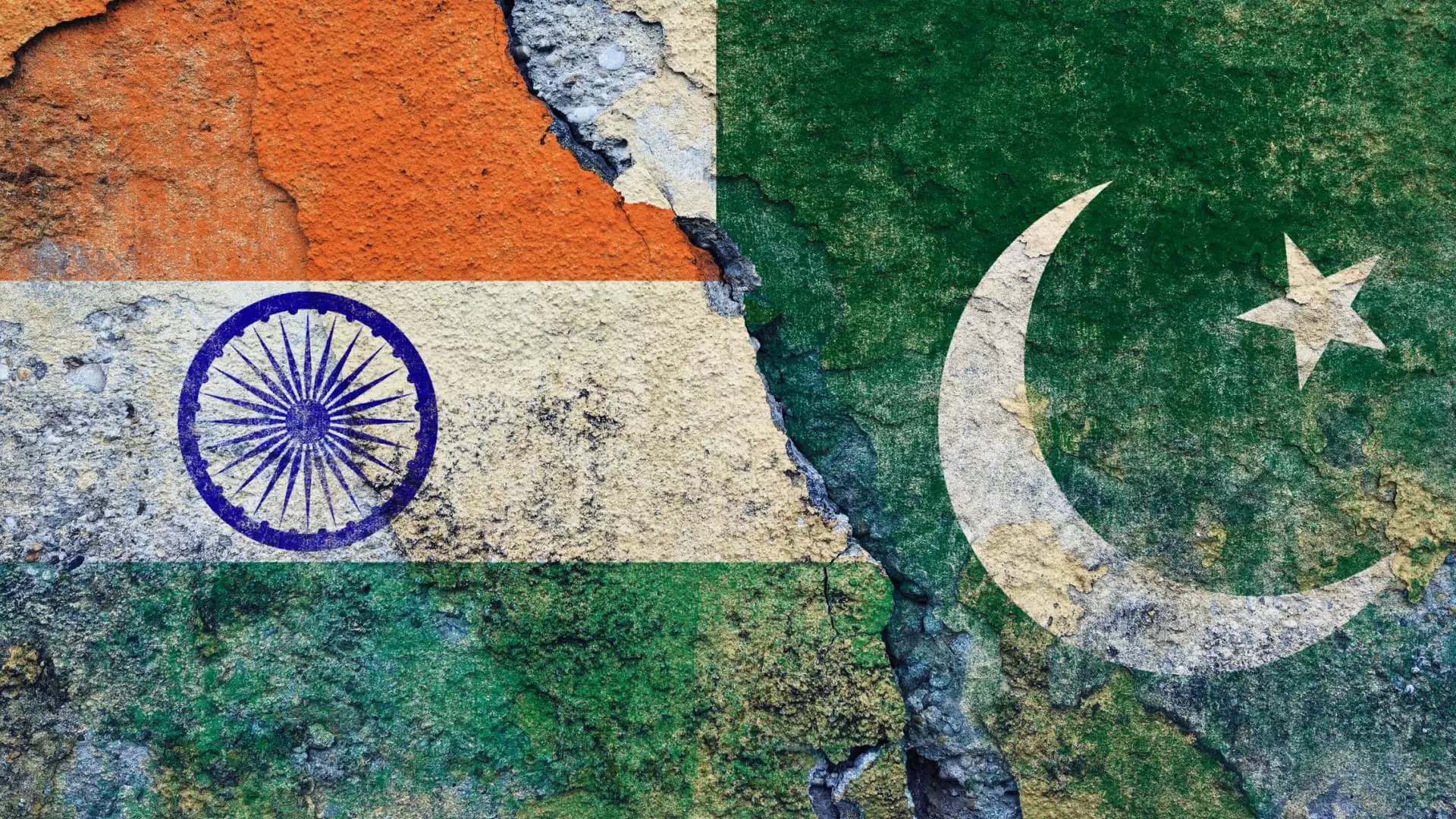The current tension between India and Pakistan, nuclear-armed neighbors with a history steeped in conflict, is a stark reminder of how fragile peace is. The feverish diplomatic efforts led by the UK and the US have momentarily quelled hostilities; however, this situation is but a bandage on a festering wound. Foreign Minister David Lammy’s recent statements in Islamabad paint a picture of hope, yet the reality is more complicated.
While the immediate ceasefire achieved on May 10 may have brought a sigh of relief across the region, the underlying issues that fuel the animosity between these two nations continue unaddressed. It’s crucial to recognize that a temporary cessation of violence does not equate to peace. It merely postpones the inevitable clashes that arise from a failure to engage in substantive dialogue.
The Role of External Actors
The involvement of nations like the UK and the United States has undoubtedly been pivotal in de-escalating recent tensions. However, the efficacy of foreign intervention, especially with powerful countries like the US presiding over the situation, brings into question a long-term resolution. Are we merely delaying the inevitable or genuinely paving the way for a lasting resolution?
It is disheartening that the very existence of high-stakes diplomacy often breeds skepticism. Can countries that have often tilted in favor of one side or the other truly facilitate unbiased dialogue? The hope that Lammy expressed regarding “confidence-building measures” must not simply be a diplomatic nicety; it needs to embody actionable policies that are essential in fostering an environment where both nations can explore resolving their differences earnestly.
Looming Water Conflicts: An Existential Threat
One of the most pressing issues that remains in the shadows of the ceasefire is the potential disruption of the Indus Water Treaty, a pact vital for Pakistan’s water security. India’s recent statements regarding the treaty can be perceived as not just an antagonistic move, but as a reckless attempt to use water resources as a tool of power. The potential of affecting Pakistan’s water supply transcends mere diplomatic squabbles; it poses existential risks to millions dependent on this vital resource.
When Lammy urges compliance with treaty obligations, it is more than just a call for cooperation; it is an appeal for human dignity. Both nations must acknowledge that water disputes often lead to broader humanitarian crises, which, if left unchecked, could further exacerbate tension, pushing both countries back to the brink of war.
The Need for Genuine Dialogue
The challenges are daunting, but not insurmountable. The true test of international diplomacy lies not in arranging temporary ceasefires, but in fostering an environment where dialogue is prioritized over military posturing. Lammy’s comments about the need for dialogue represent a forward-thinking approach, yet they remain platitudes without concrete actions behind them.
Dialogue is not just about sitting at the same table; it’s about a willingness to listen, understand, and negotiate. As world powers exert their influence, South Asian leaders must prioritize mutual understanding over vindictiveness. Until authentic exchange becomes the norm rather than the exception, the presence of foreign powers is likely to be more detrimental than beneficial.
Embracing Conflict Resolution and Countering Terrorism
Lammy’s mention of combatting terrorism also bears significant importance. Terrorism is indeed an ugly stain on societies and must be addressed as a commonplace threat to peace in the region. While the UK supports Pakistan in this effort, maintaining a balanced approach is vital. To tackle terrorism effectively, regional cooperation is crucial, not just between India and Pakistan but also involving the international community.
Misguided politics, where blame and accusations take precedence over actionable strategies, have allowed terrorism to thrive. If leaders can coordinate efforts to combat this common enemy, they might find that in collaboration lies not just security, but also a bridge to dialogue.
The road ahead is fraught with difficulty, yet it is time for both nations, under the watchful eye of global powers, to prioritize genuine dialogue, ensuring that today’s ceasefire leads to tomorrow’s lasting peace.


Leave a Reply